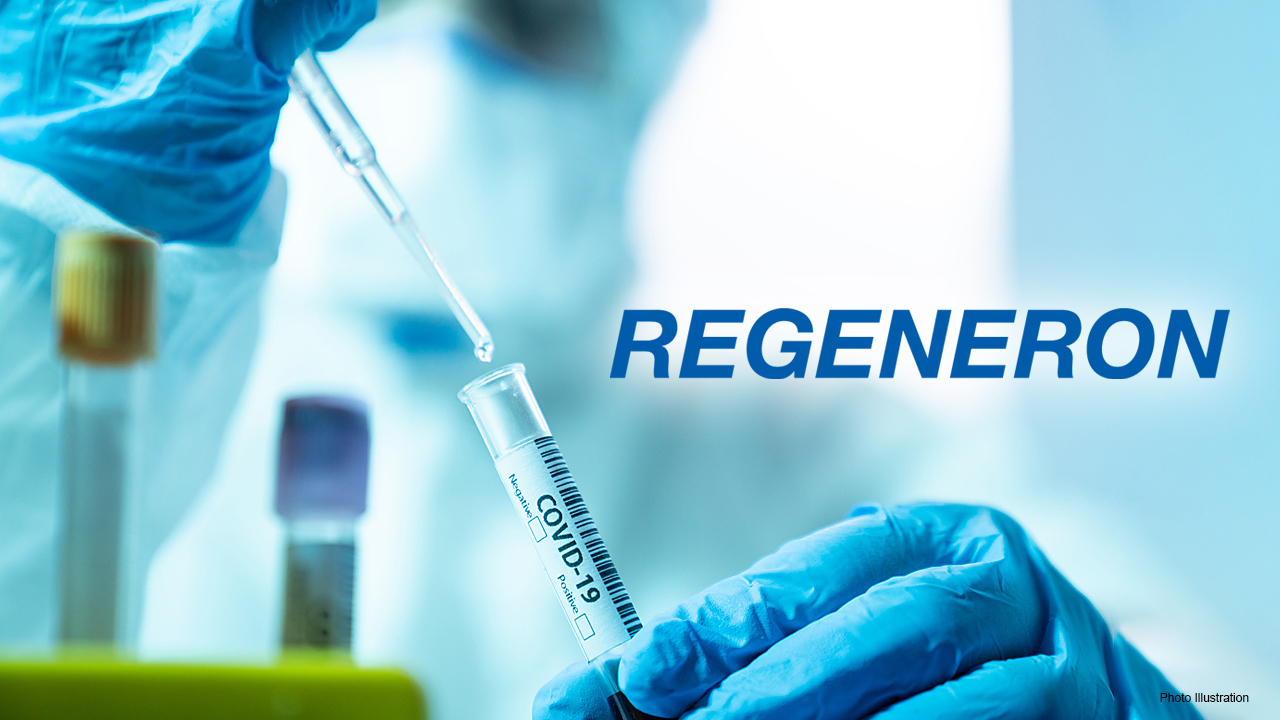Regeneron Pharmaceuticals, Inc. announced that the antibody cocktail casirivimab and imdevimab administered together, a therapy currently being investigated for use in COVID-19, has received Emergency Use Authorization (EUA) from the U.S. Food and Drug Administration (FDA). Casirivimab and imdevimab administered together are authorized for the treatment of mild to moderate COVID-19 in adults, as well as in pediatric patients at least 12 years of age and weighing at least 40 kg, who have received positive results of direct SARS-CoV-2 viral testing and are at high risk for progressing to severe COVID-19 and/or hospitalization. The clinical evidence from Regeneron's outpatient trial suggests that monoclonal antibodies such as REGEN-COV2 have the greatest benefit when given early after diagnosis and in patients who have not yet mounted their own immune response or who have high viral load.
The criteria for 'high-risk' patients are described in the Fact Sheet for Health Care Providers. Casirivimab and imdevimab are not authorized for use in patients who are hospitalized or require oxygen therapy due to COVID-19, or for people currently using chronic oxygen therapy because of an underlying comorbidity who require an increase in baseline oxygen flow rate due to COVID-19.
"This FDA Emergency Use Authorization is an important step in the fight against COVID-19, as high-risk patients in the United States will have access to a promising therapy early in the course of their infection," said Leonard S. Schleifer, M.D., Ph.D., President and Chief Executive Officer of Regeneron. "The science and technology investments Regeneron has made over three decades positioned us to move rapidly to invent, study and maximize production of REGEN-COV2. Even with these incredible efforts, demand may exceed supply initially, making it even more critical that federal and state governments ensure REGEN-COV2 is distributed fairly and equitably to the patients most in need. In the first quarter of 2021, we expect to increase available REGEN-COV2 global supply as we continue our collaboration with Roche."
"REGEN-COV2 is designed to mimic what a well-functioning immune system does by using very potent antibodies to neutralize the virus," said George D. Yancopoulos, M.D., Ph.D., President and Chief Scientific Officer of Regeneron. "Data from approximately 800 non-hospitalized patients showed significant reductions in virus levels within days of receiving REGEN-COV2, which were associated with significantly fewer medical visits. This benefit was greatest in patients most at risk for poor outcomes due to high viral load, ineffective immune response at baseline or pre-existing risk factors. We are encouraged that no variants resistant to the cocktail were identified in the clinical trial analyses to date, which is consistent with our preclinical findings. We are also very encouraged by recently announced promising vaccine results; however, there remains a need to treat patients who develop COVID-19, especially as some may not have had access to or were not protected by vaccination. Importantly, we continue to advance our rigorous clinical trial program evaluating the safety and efficacy of REGEN-COV2 for both the treatment and prevention of COVID-19, and we will share new results as available."
Production of monoclonal antibodies is a complex, time- and labor-intensive process that requires deep expertise. Utilizing production and manufacturing platforms developed over decades, Regeneron rapidly scaled up REGEN-COV2, beginning in the early days of the pandemic with support from the Biomedical Advanced Research and Development Authority (BARDA), part of the Office of the Assistant Secretary for Preparedness and Response at the U.S. Department of Health and Human Services. Regeneron now expects to have REGEN-COV2 treatment doses ready for approximately 80,000 patients by the end of November, approximately 200,000 patients by the first week of January, and approximately 300,000 patients in total by the end of January 2021.
As part of Operation Warp Speed, in July the U.S. government and Regeneron signed an agreement for this initial supply of REGEN-COV2. The U.S. government will coordinate with state authorities to allocate REGEN-COV2 on a weekly basis based on the number of COVID-19 cases in each state. The government has committed to providing these 300,000 doses at no cost to patients, although healthcare facilities may charge fees related to administration. Regeneron will immediately begin shipping REGEN-COV2 to Amerisource Bergen, a national distributor, which will distribute the therapy as directed by the government.
Under the EUA, the recommended dose is 1,200 mg of casirivimab and 1,200 mg of imdevimab (2,400 mg total) administered as a single intravenous infusion. The authorization is based on positive Phase 2 data announced in September and October from the first 799 adults in an ongoing randomized, double-blind, placebo-controlled trial of non-hospitalized patients ("outpatients") with COVID-19.
The FDA grants Emergency Use Authorization to medicines that may help diagnose, treat or prevent a life-threatening disease when adequate and approved alternatives are not available. The EUA is temporary and does not take the place of a formal biologics license application (BLA) submission review and approval process. This use is authorized only for the duration of the declaration that circumstances exist justifying the authorization of the emergency use, unless terminated or revoked sooner. Casirivimab and imdevimab have not been approved by FDA and remain investigational. Evaluation of its safety and efficacy is ongoing in multiple clinical trials. Data from these trials will be used to support a future BLA submission.
REGEN-COV2 continues to be evaluated in Phase 2/3 clinical trials for the treatment of COVID-19 in certain hospitalized and non-hospitalized patients, the Phase 3 open-label RECOVERY trial of hospitalized patients in the UK, and a Phase 3 trial for the prevention of COVID-19 in household contacts of infected individuals. To date, more than 7,000 people have participated in REGEN-COV2 clinical trials.

 The clinical evidence from Regeneron's outpatient trial suggests that monoclonal antibodies such as REGEN-COV2 have the greatest benefit when given early after diagnosis
The clinical evidence from Regeneron's outpatient trial suggests that monoclonal antibodies such as REGEN-COV2 have the greatest benefit when given early after diagnosis 










.jpeg)




.jpeg)

.jpg)













